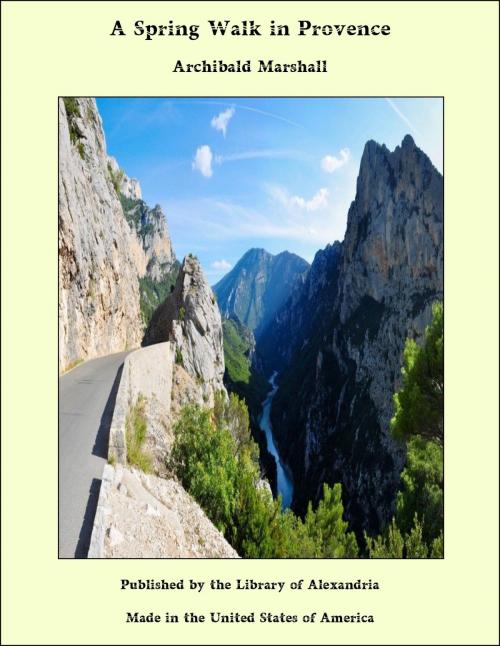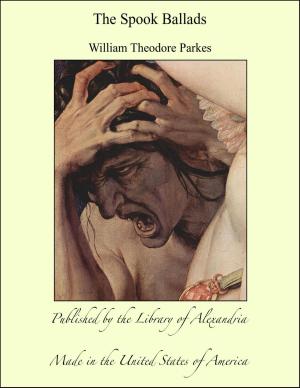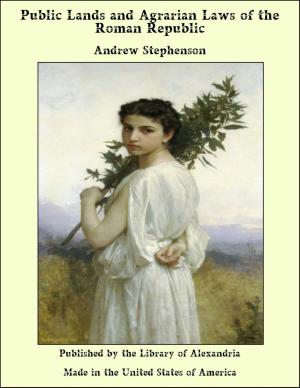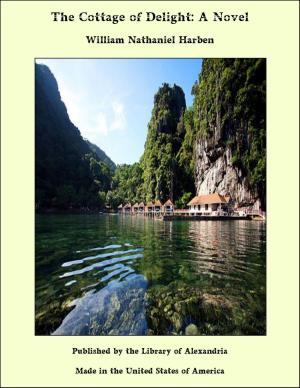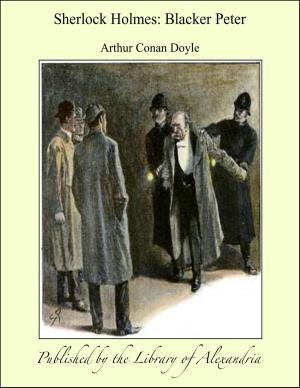A Spring Walk in Provence
Nonfiction, Religion & Spirituality, New Age, History, Fiction & Literature| Author: | Archibald Marshall | ISBN: | 9781465617842 |
| Publisher: | Library of Alexandria | Publication: | March 8, 2015 |
| Imprint: | Language: | English |
| Author: | Archibald Marshall |
| ISBN: | 9781465617842 |
| Publisher: | Library of Alexandria |
| Publication: | March 8, 2015 |
| Imprint: | |
| Language: | English |
I was to walk through the country from the Italian border, but it rained so heavily on the first day that I went to Mentone and took the mountain tramway to Sospel, where in any case I had intended to spend the night. Two years ago, before this tram-line was quite finished, I motored up to Sospel to play golf. It was a pleasant experience, though not without its thrills, for the road zigzags and corkscrews up mountain sides and across deep gorges in a way to make one thankful for strong brakes and a reliable driver, especially on the return journey. The hillsides are cultivated everywhere. The precipitous slopes have been terraced with infinite labour, and orange and lemon groves surrounding pretty little lodges and cottages, only give way as one mounts higher to the grey-green of olive plantations. When you have climbed up 2,300 feet, the road, as if tired of twisting and turning, boldly attacks the mountain side, runs through a tunnel pierced in the solid rock and comes out on the other side of the peak. Then it takes a turn so sharp that not long ago a car coming too fast through the tunnel went over the precipitous edge and all its occupants were killed. The crowning danger safely surmounted, you drop down into a green mountain valley, surrounded by what Smollett, who passed through Sospel on his way from Nice to Italy a hundred and fifty years ago, described as "prodigious high and barren mountains." The valley is all verdant pasture, watered by a broad, shallow, tree-shaded river, which, to quote the same authority, "forms a delightful contrast with the hideous rocks surrounding it." All mountains were "hideous" and "horrid" in the eyes of our ancestors. We, as we play along the grassy meadows, and cross here and there the clear river rippling over its pebbles, have come to think that the towering rock-ramparts, upon which the sun and the clouds play with infinite gradations of light and colour, have as much to do with the beauty of the scene as the verdant valley itself, or the little old huddled Italian-looking town which hugs both banks of the river. It was that little old town, which the golfer coming up from Mentone only skirts on his way to the links, that had remained in my memory, even more than the unusual charm of the links and the excellence of the greens. It stands curiously aside from the wave of modernity that has washed up to it from the wealthy delocalized coast. Turn to the right when you reach the corner, and you are still in the atmosphere of the Côte d'Azur, although you are fifteen miles inland from Mentone; turn to the left and you are in southern provincial France, in a street of little shops and little cafés and buvettes, and pick your way amongst a crowd of peasants and townspeople, buying and selling, talking of their crops and their commerce, and as little concerned with what is going on half a mile away as if they had never seen a mashie or a putter, and none of them had ever shouldered a bag of clubs for a curiously-garbed curiously-spoken foreigner. Probably it is only the caddies or the ex-caddies who ever mention golf in the town of Sospel. It stands so aloof that even its prices have not yet been affected by the lavish ways of the holiday coast, with which it has formed this late new connection. So I turned to the left. I wanted to have done for a time with everything English, and more particularly with the sort of hotel that has an English-speaking waiter, or indeed a waiter at all. Sospel was to provide me with my first genuine experience of a French inn, as used by the people of the country and not by the tourist.
I was to walk through the country from the Italian border, but it rained so heavily on the first day that I went to Mentone and took the mountain tramway to Sospel, where in any case I had intended to spend the night. Two years ago, before this tram-line was quite finished, I motored up to Sospel to play golf. It was a pleasant experience, though not without its thrills, for the road zigzags and corkscrews up mountain sides and across deep gorges in a way to make one thankful for strong brakes and a reliable driver, especially on the return journey. The hillsides are cultivated everywhere. The precipitous slopes have been terraced with infinite labour, and orange and lemon groves surrounding pretty little lodges and cottages, only give way as one mounts higher to the grey-green of olive plantations. When you have climbed up 2,300 feet, the road, as if tired of twisting and turning, boldly attacks the mountain side, runs through a tunnel pierced in the solid rock and comes out on the other side of the peak. Then it takes a turn so sharp that not long ago a car coming too fast through the tunnel went over the precipitous edge and all its occupants were killed. The crowning danger safely surmounted, you drop down into a green mountain valley, surrounded by what Smollett, who passed through Sospel on his way from Nice to Italy a hundred and fifty years ago, described as "prodigious high and barren mountains." The valley is all verdant pasture, watered by a broad, shallow, tree-shaded river, which, to quote the same authority, "forms a delightful contrast with the hideous rocks surrounding it." All mountains were "hideous" and "horrid" in the eyes of our ancestors. We, as we play along the grassy meadows, and cross here and there the clear river rippling over its pebbles, have come to think that the towering rock-ramparts, upon which the sun and the clouds play with infinite gradations of light and colour, have as much to do with the beauty of the scene as the verdant valley itself, or the little old huddled Italian-looking town which hugs both banks of the river. It was that little old town, which the golfer coming up from Mentone only skirts on his way to the links, that had remained in my memory, even more than the unusual charm of the links and the excellence of the greens. It stands curiously aside from the wave of modernity that has washed up to it from the wealthy delocalized coast. Turn to the right when you reach the corner, and you are still in the atmosphere of the Côte d'Azur, although you are fifteen miles inland from Mentone; turn to the left and you are in southern provincial France, in a street of little shops and little cafés and buvettes, and pick your way amongst a crowd of peasants and townspeople, buying and selling, talking of their crops and their commerce, and as little concerned with what is going on half a mile away as if they had never seen a mashie or a putter, and none of them had ever shouldered a bag of clubs for a curiously-garbed curiously-spoken foreigner. Probably it is only the caddies or the ex-caddies who ever mention golf in the town of Sospel. It stands so aloof that even its prices have not yet been affected by the lavish ways of the holiday coast, with which it has formed this late new connection. So I turned to the left. I wanted to have done for a time with everything English, and more particularly with the sort of hotel that has an English-speaking waiter, or indeed a waiter at all. Sospel was to provide me with my first genuine experience of a French inn, as used by the people of the country and not by the tourist.
